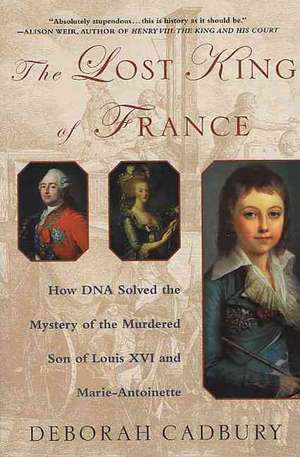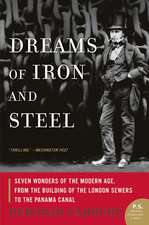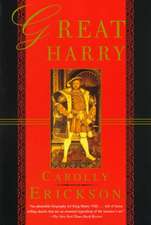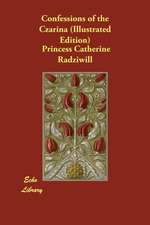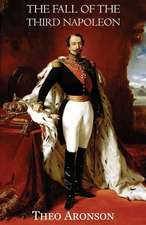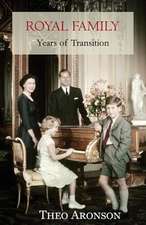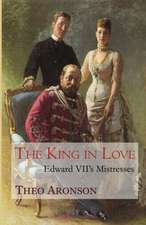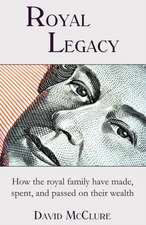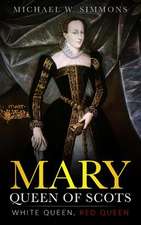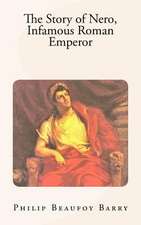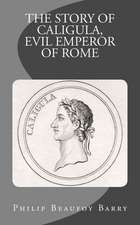The Lost King of France: How DNA Solved the Mystery of the Murdered Son of Louis XVI and Marie Antoinette
Autor Deborah Cadburyen Limba Engleză Paperback – 30 sep 2003
Louis-Charles, Duc de Normandie, enjoyed a charmed early childhood in the gilded palace of Versailles. At the age of four, he became the dauphin, heir to the most powerful throne in Europe. Yet within five years he was to lose everything. Drawn into the horror of the French Revolution, his family was incarcerated and their fate thrust into the hands of the revolutionaries who wished to destroy the monarchy.
In 1793, when Marie Antoinette was beheaded at the guillotine, she left her adored eight-year-old son imprisoned in the Temple Tower. Far from inheriting a throne, the orphaned boy-king had to endure the hostility and abuse of a nation. Two years later, the revolutionary leaders declared Louis XVII dead. No grave was dug, no monument built to mark his passing.
Immediately, rumors spread that the prince had, in fact, escaped from prison and was still alive. Others believed that he had been murdered, his heart cut out and preserved as a relic. As with the tragedies of England's princes in the Tower and the Romanov archduchess Anastasia, countless "brothers" soon approached Louis-Charles's older sister, Marie-Therese, who survived the revolution. They claimed not only the dauphin's name, but also his inheritance. Several "princes" were plausible, but which, if any, was the real heir to the French throne?
The Lost King of France is a moving and dramatic tale that interweaves a pivotal moment in France's history with a compelling detective story that involves pretenders to the crown, royalist plots and palace intrigue, bizarre legal battles, and modern science. The quest for the truth continued into the twenty-first century, when, thanks to DNA testing, the strange odyssey of a stolen heart found within the royal tombs brought an exciting conclusion to the two-hundred-year-old mystery of the lost king of France.
In 1793, when Marie Antoinette was beheaded at the guillotine, she left her adored eight-year-old son imprisoned in the Temple Tower. Far from inheriting a throne, the orphaned boy-king had to endure the hostility and abuse of a nation. Two years later, the revolutionary leaders declared Louis XVII dead. No grave was dug, no monument built to mark his passing.
Immediately, rumors spread that the prince had, in fact, escaped from prison and was still alive. Others believed that he had been murdered, his heart cut out and preserved as a relic. As with the tragedies of England's princes in the Tower and the Romanov archduchess Anastasia, countless "brothers" soon approached Louis-Charles's older sister, Marie-Therese, who survived the revolution. They claimed not only the dauphin's name, but also his inheritance. Several "princes" were plausible, but which, if any, was the real heir to the French throne?
The Lost King of France is a moving and dramatic tale that interweaves a pivotal moment in France's history with a compelling detective story that involves pretenders to the crown, royalist plots and palace intrigue, bizarre legal battles, and modern science. The quest for the truth continued into the twenty-first century, when, thanks to DNA testing, the strange odyssey of a stolen heart found within the royal tombs brought an exciting conclusion to the two-hundred-year-old mystery of the lost king of France.
Louis-Charles, Duc de Normandie, enjoyed a charmed early childhood in the gilded palace of Versailles. At the age of four, he became the dauphin, heir to the most powerful throne in Europe. Yet within five years he was to lose everything. Drawn into the horror of the French Revolution, his family was incarcerated and their fate thrust into the hands of the revolutionaries who wished to destroy the monarchy.
In 1793, when Marie Antoinette was beheaded at the guillotine, she left her adored eight-year-old son imprisoned in the Temple Tower. Far from inheriting a throne, the orphaned boy-king had to endure the hostility and abuse of a nation. Two years later, the revolutionary leaders declared Louis XVII dead. No grave was dug, no monument built to mark his passing.
Immediately, rumors spread that the prince had, in fact, escaped from prison and was still alive. Others believed that he had been murdered, his heart cut out and preserved as a relic. As with the tragedies of England's princes in the Tower and the Romanov archduchess Anastasia, countless "brothers" soon approached Louis-Charles's older sister, Marie-Therese, who survived the revolution. They claimed not only the dauphin's name, but also his inheritance. Several "princes" were plausible, but which, if any, was the real heir to the French throne?
The Lost King of France is a moving and dramatic tale that interweaves a pivotal moment in France's history with a compelling detective story that involves pretenders to the crown, royalist plots and palace intrigue, bizarre legal battles, and modern science. The quest for the truth continued into the twenty-first century, when, thanks to DNA testing, the strange odyssey of a stolen heart found within the royal tombs brought an exciting conclusion to the two-hundred-year-old mystery of the lost king of France.
In 1793, when Marie Antoinette was beheaded at the guillotine, she left her adored eight-year-old son imprisoned in the Temple Tower. Far from inheriting a throne, the orphaned boy-king had to endure the hostility and abuse of a nation. Two years later, the revolutionary leaders declared Louis XVII dead. No grave was dug, no monument built to mark his passing.
Immediately, rumors spread that the prince had, in fact, escaped from prison and was still alive. Others believed that he had been murdered, his heart cut out and preserved as a relic. As with the tragedies of England's princes in the Tower and the Romanov archduchess Anastasia, countless "brothers" soon approached Louis-Charles's older sister, Marie-Therese, who survived the revolution. They claimed not only the dauphin's name, but also his inheritance. Several "princes" were plausible, but which, if any, was the real heir to the French throne?
The Lost King of France is a moving and dramatic tale that interweaves a pivotal moment in France's history with a compelling detective story that involves pretenders to the crown, royalist plots and palace intrigue, bizarre legal battles, and modern science. The quest for the truth continued into the twenty-first century, when, thanks to DNA testing, the strange odyssey of a stolen heart found within the royal tombs brought an exciting conclusion to the two-hundred-year-old mystery of the lost king of France.
Preț: 126.60 lei
Nou
Puncte Express: 190
Preț estimativ în valută:
24.22€ • 25.24$ • 20.06£
24.22€ • 25.24$ • 20.06£
Carte tipărită la comandă
Livrare economică 04-18 aprilie
Preluare comenzi: 021 569.72.76
Specificații
ISBN-13: 9780312320294
ISBN-10: 0312320299
Pagini: 336
Dimensiuni: 140 x 213 x 18 mm
Greutate: 0.39 kg
Ediția:Reprint
Editura: St. Martin's Griffin
ISBN-10: 0312320299
Pagini: 336
Dimensiuni: 140 x 213 x 18 mm
Greutate: 0.39 kg
Ediția:Reprint
Editura: St. Martin's Griffin
Notă biografică
Deborah Cadbury is an award-winning journalist specializing in the fundamental issues of science and history and their effects on today's society. She is also the author of the highly acclaimed books Terrible Lizard and The Estrogen Effect. She has produced science programs for BBC television and has won numerous international science film awards, including an Emmy. She lives in London.
Descriere
Royalty, revolution, and scientific mystery---the dramatic true account of the fate of Louis XVII, son of Marie Antoinette, and an extraordinary detective story that spans more than two hundred years.
